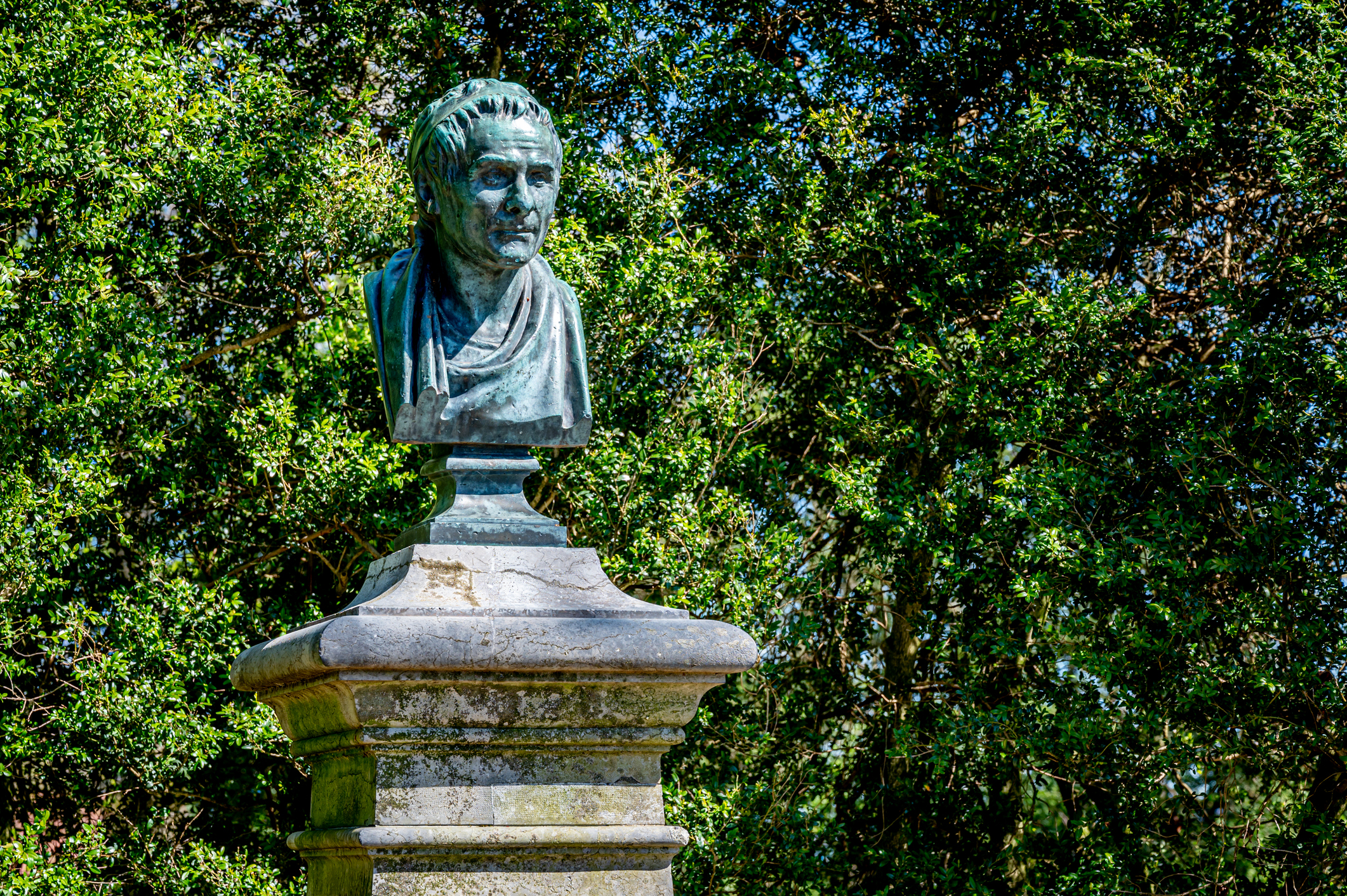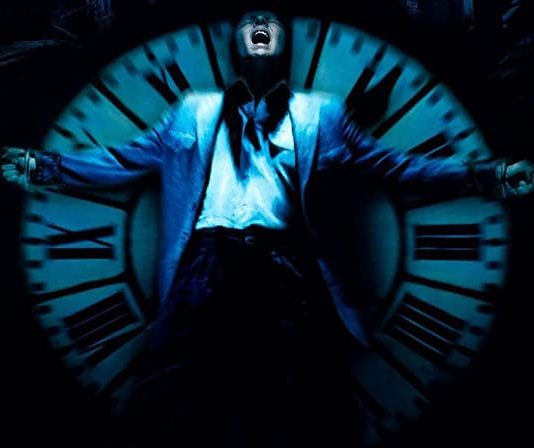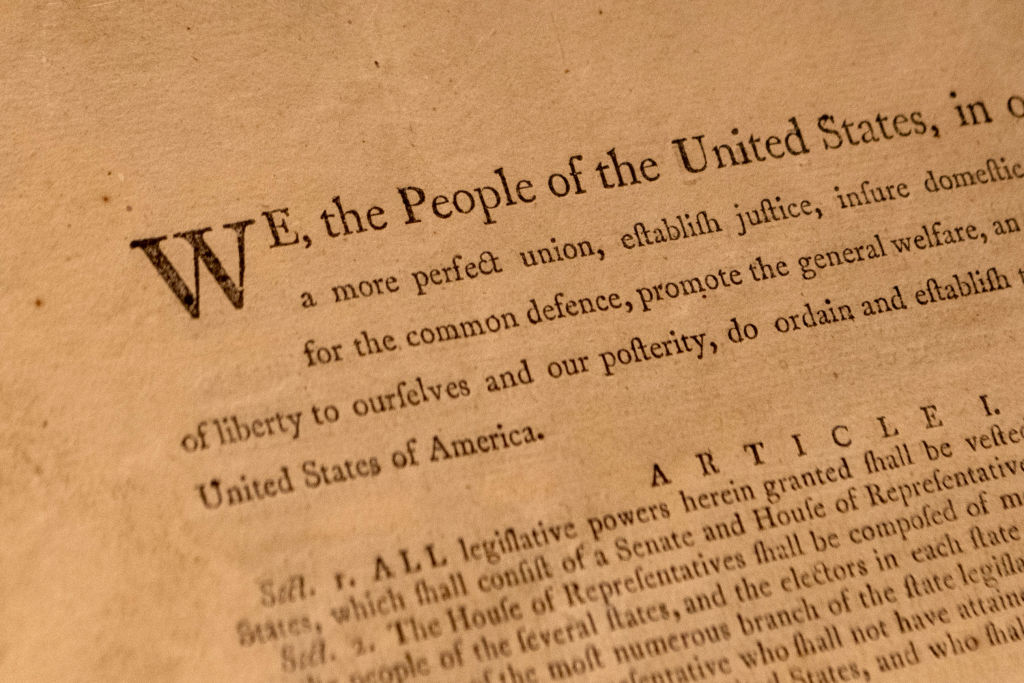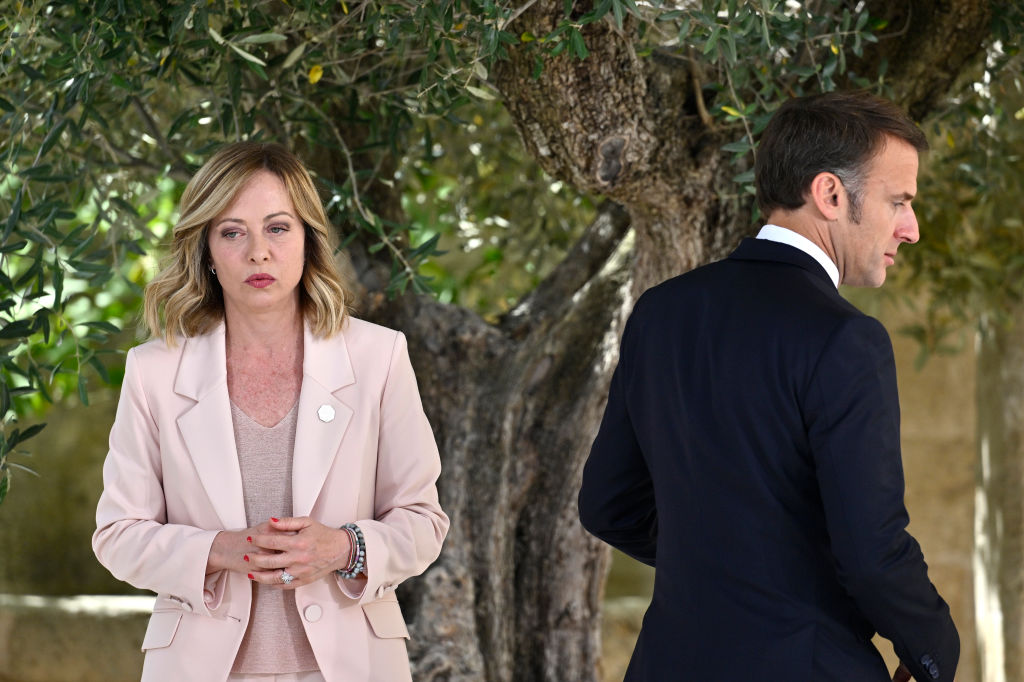Our ruling classes hold as much contempt for reality as they do for us.
The Right’s Rousseau Problem

The philosopher’s focus on citizenship is consistent with Donald Trump’s message.
The Left often sees Jean-Jacques Rousseau as a champion of equality and uses his criticisms of economic inequality and elite power. Take David Lay Williams, for example, a Rousseau scholar who recently claimed in the New York Times that Rousseau can give us special insight into Donald Trump. Supposedly, Rousseau can help us see why Trump thrives by stoking division—he pits Americans against each other in order to distract them from growing economic inequality. As Williams quotes Rousseau in the Second Discourse, “Chiefs foment everything that can weaken assembled men by disuniting them.”
But this kind of interpretation misses something crucial. Rousseau didn’t just warn about money and class in his writings: he was also worried about the breakdown of shared identity and culture—that is, citizenship. The Left loves to champion Rousseau when it’s convenient, but they ignore his warnings about what happens when people no longer see themselves as part of a shared community.
Conservatives, of course, tend to dismiss Rousseau as a radical whose ideas fueled the French Revolution’s bloodiest moments. They point to his personal failings—including abandoning his five children—and his influence on the Terror as reasons to dismiss him. After all, it wasn’t a copy of The Republic of Plato Robespierre kept in his front pocket: it was Rousseau’s The Social Contract.
But it is a mistake for the Right, which often condenses Rousseau’s political ideas to one often-quoted and much-misunderstood line, “he shall be forced to be free,” to cede him to the Left. By doing that, they miss the chance to engage with some of his most relevant insights. (It was Ayatollah Khomeini who preferred The Republic by the way.)
The Right misses Rousseau’s bigger message of citizenship, national unity, and the dangers of unchecked diversity. And his teaching that nations are tied together by culture and identity has much more in common with conservative concerns about mass migration and national sovereignty today than it does with the Left’s interests.
Donald Trump’s calls to “Make American Great Again” in fact have more in common with Rousseau than both Trump’s fans and critics want to admit.
Rousseau’s Focus on Shared Culture
At the core of Rousseau’s political thinking is a simple idea: we only care—or feel pity for—people we know. The general will—the collective good—can only emerge when people care about one another and share a sense of belonging. That is, it must be possible for the citizen to imagine himself in the place of other citizens.
In The Social Contract, Rousseau describes a healthy republic in this way: “So long as several men united consider themselves a single body, they have but a single will, which is concerned with their common preservation, and general welfare.” Only then is the state “vigorous and simple,” with maxims “clear and perspicuous,” because “it has no confused, contradictory interests.” Concern for the “general welfare” does not mean a loss for one’s individual well-being. Rather, a member of a healthy republic sees his individual good in the general well-being of his fellow citizens and, therefore, will act accordingly—that is, obey and love the law.
The friendship and common interest that patriotism encourages makes possible the general will, which Rousseau explains in The Social Contract “alone can direct the forces of the State according to the end of its institution.” Affinity among citizens supports the general will while tempering the selfish passions that people would otherwise pursue unchecked. In The Government of Poland, Rousseau praises leaders who gave their people customs and traditions that kept them in such a “single body.”
Rousseau’s message was clear: patriotism and citizenship—not economic equality—is the glue that holds society together. When citizens love their country, they see their own well-being as tied to the well-being of their neighbors. That sense of shared purpose is what makes a society work.
Immigration and America’s Identity Crisis
Rousseau’s insights hit home in today’s debate about immigration. In places like Springfield, Ohio, where tens of thousands of Haitian migrants have recently settled, the challenge to cultural unity is clear. When immigrants bring different languages, customs, and loyalties, it puts a strain on the shared identity Rousseau saw as crucial to keeping society intact.
Critics like David Lay Williams argue that Trump and J.D. Vance are divisive on immigration in order to secure their own power. For Williams, flooding a town with immigrants doesn’t “foment” division—but Trump, Vance, and their supporters noticing does. Yet Rousseau would consider Trump’s focus on national unity exactly what’s needed. He would likely argue that without a common identity, a country is vulnerable to division and disintegration.
In fact, Rousseau explicitly argued that citizenship requires separation from the rest of humanity. In the Government of Poland, he advised the Poles to develop a strong love of country by cultivating customs that set them apart, even their manner of dress, from Europeans. That’s because citizenship can never be universal.
Rousseau praises Moses because “to keep his people from being absorbed by foreign peoples he gave it morals and practices which could not be blended with those of other nations.” He praises Numa for teaching the Romans to become “attached to soil and each other.” He keeps these legislators in mind when he encourages “a different bent to the Poles’ passions, and you will give their souls a national physiognomy which will set them apart from all other peoples.” Rousseau advised the Poles to develop a strong love of country in their history, their ceremonies—in everything.
If anything, the modern push for open borders does the very opposite of what Rousseau wanted: sow division by weakening the ties that bind citizens together. Without civic identity, Rousseau thought there could be no “civil order” with “legitimate and sure rule of administration.” The lack of civic identity paves the way to all sorts of problems such as superfluous laws, wars, and taxes. This is the crisis that leads to division, demagogues, and decline.
Case in point: In 2020, Springfield had a population of just under 60,000. But in the last four years, an estimated 15,000 to 20,000 Haitian migrants moved to this dying manufacturing town. Crime, traffic violations and deaths, and the drain on human services are all serious consequences of this influx.
From a more complete Rousseauian perspective, Trump’s calls for preserving American unity and identity in the face of mass immigration are exactly what America needs to prevent division.
Considering how important a shared civic identity was for Rousseau, it is not unreasonable to think that perhaps the people who enable the destruction of that identity are the ones seeking to “foment everything that can weaken assembled men by disuniting them” in order to secure their own power. But if you do, they’ll tell you, as Anand Giridharadas recently did while on MSNBC’s Morning Joe, to “buck up.”
The Dangers of Abstract Humanitarianism
Morning Joe’s response to the crisis in Springfield is a reminder that Rousseau also warned against loving humanity at the expense of your own people. In Emile, he wrote, “A philosopher loves a Tartar so as to be spared having to love his neighbors.” Today, we might say, “A liberal loves a Haitian so as to be spared having to love his fellow Americans.”
For Rousseau, caring about humanity in the abstract often leads to neglect of the people you’re actually responsible for. If friendship between citizens, civic identity, and a love of one’s own laws are necessary for the general will—and by extension a republic’s preservation—attempting to secure the rights of humanity is ultimately irreconcilable with these aims.
Rousseau thought it impossible for a person to be both a patriot and a lover of humanity at the same time. Encouraging patriotism alone is the best way to encourage humane action, at least among citizens. As Rousseau warns in Letters Written from the Mountain, “The Legislator who wants them both will get neither one nor the other. This compatibility has never been seen and never will be, because it is contrary to nature, because one cannot give the same passion two aims.”
Encouraging the love of humanity is far too general, and therefore far too abstract. Because of man’s incapacity, promoting humanity in general only results in inhumanity. To quote the French novelist Michel Houellebecq, “People who have humanitarian ideas are a catastrophe.” Indeed, a quick glance at America’s foreign policy shows Rousseau’s interpretation to be correct. Our country’s pursuit of so-called human rights often works out poorly for everyone—whether American or not.
In Emile, Rousseau tells his readers to “[d]istrust those cosmopolitans who go to great lengths in their books to discover duties they do not deign to fulfill around them.” They can love foreigners in the abstract because it doesn’t require any action on their part. While they pat themselves on the back for their moral scruples, they sneer at the concerns of their fellow citizens in Springfield, those who are concerned about the border, and those they send to fight and die in their wars. When patriotism is abandoned for abstract humanitarianism, this is exactly the kind of mess Rousseau predicted.
Defend National Identity
Today, while elites champion the plight of far-off groups, Trump speaks directly to the concerns of ordinary Americans who are concerned about their crumbling society. If we apply Rousseau’s thinking to our present political moment, we see Trump’s rhetoric as a necessary reaction to a country that’s been deeply divided due to unchecked immigration and declining interest in citizenship and civic identity. Trump’s warnings about unchecked immigration aren’t a distraction from our problems—they are an acknowledgement of the biggest problem facing our country. To put it simply, Trump has a great likelihood of being more effective and even more humane because of his willingness to put America First.
Promoting humanity will always be at the expense of citizens—and will be disastrous for both citizens and mankind. If Americans want to preserve their liberty, they must defend their national and civic identity by preventing their country from, to quote Rousseau, “being absorbed by foreign peoples.”
The American Mind presents a range of perspectives. Views are writers’ own and do not necessarily represent those of The Claremont Institute.
The American Mind is a publication of the Claremont Institute, a non-profit 501(c)(3) organization, dedicated to restoring the principles of the American Founding to their rightful, preeminent authority in our national life. Interested in supporting our work? Gifts to the Claremont Institute are tax-deductible.
Trump’s call to end birthright citizenship is a necessary corrective.
The recent elections reflect broad dissatisfaction with the loss of national and cultural sovereignty.
The decline and fall of the non-American Anglosphere.
U.S. public education should be open only to citizens and those who are here legally.
Romanticizing direct democracy leads to pandemic anarchy.






